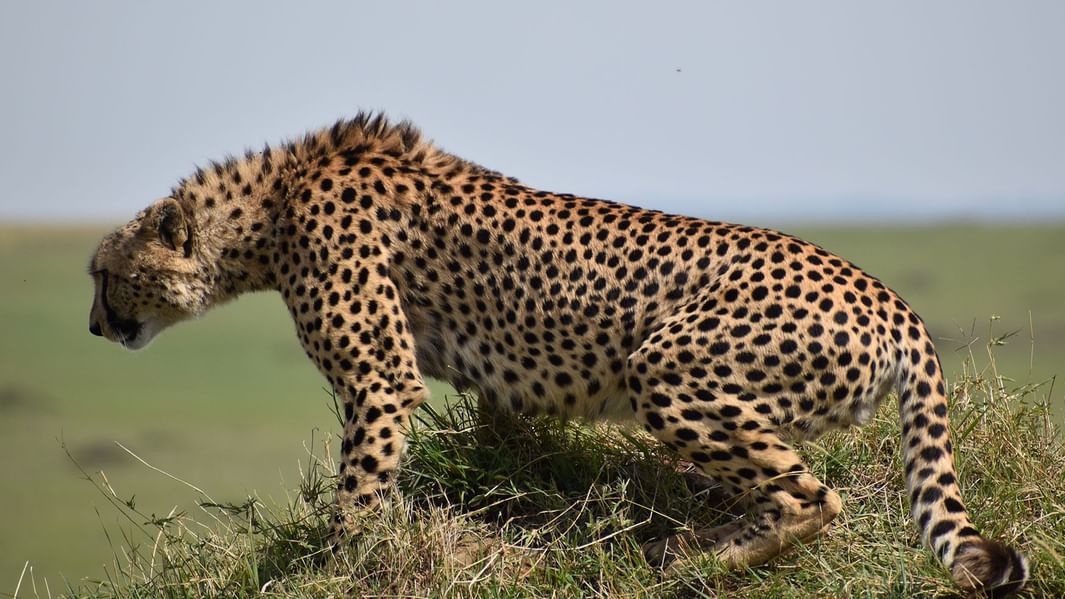SERENA SOCIAL
JOIN THE SERENA ONLINE COMMUNITY
Let’s get social. Join the Serena Hotels online community and stay up-to-date on all our recent news and happenings via Instagram, Twitter, Facebook and Tripadvisor.
A very eco lodge

For those dedicated to the reduction of global warming and the preservation of our planet for generations to come, the Mara Serena Safari Lodge makes the ideal eco-accommodation. The only lodge to be located within the world-famous Mara Triangle of the Masai Mara National Reserve, it enjoys prime position and stands centre-stage to the impressive theatre of the wild. Built high on a hill, its rooms promise long views over the plains and easy access to the Mara River where the local hippos provide a backdrop to the ever-popular Hippo Breakfast. In concept, the lodge has been styled to echo the distinctive building-style of the Maasai people while the interior décor draws heavily on traditional Maasai motifs and colours.
The lodge also promises an impressive eco-pedigree. In the first instance it is 100% solar-powered thanks to the installation of its own solar farm, secondly it uses water only from its own borehole. As one might expect, the lodge also adherers to a rigorous regime with regard to the minimal use of water, chemicals, lights, energy and plastic. Also, to the eco-compliant disposal of effluent and waste. Wherever possible, the lodge sources food from the local farms. It also works with local pig farmers in the disposal of non-consumed food.
Long committed to the greening of the Mara, the lodge promotes an impressive tree-planting programme. Tens of thousands of indigenous trees have been planted just outside the Mara Triangle and many more in the Isokon area. The lodge also works closely with local schools in the planting of indigenous trees. Latterly the lodge has also embarked on a fascinating programme devoted to the replanting of the endangered African cycad genus Encephalartos.
Dedicated towards maintaining the pristine character of the Reserve, the lodge cooperates twice-monthly with the local community to carry out a litter-collection drive. The staff also participate in a number of wildlife censuses in cooperation with the Kenya Wildlife Service and the Mara Conservancy. Recent census work has included that of the counting cheetah and rhino.
As part of its pan-ecological programme, the lodge is committed to a carefully calibrated policy of community development designed to promote the Maasai culture, integrate with the local community and provide health and educational services. 34% of the staff are drawn from the local area while the local Isokon Primary School enjoys significant support from the lodge. Examples of this support include the drilling of a well for the school, the provision of major water storage tanks, the setting up of a vegetable garden to provide fresh vegetables for the children’s lunch, and the general provision of beds, clothing, shoes and classrooms. In partnership with the Lions School organization and the Aga Khan Foundation, the lodge has also provided a library for the school which is stocked with over 100 story books in local languages. The library is allied to a more extensive programme dedicated towards promoting literacy and early childhood development.
Isokon Primary School is not the only educational facility to work with the lodge which also works to support the local Maasai Educational Centre. This facility provides training across a broad range of disciplines designed to provide viable futures for the local youth. The lodge enhances the educational reach of the Centre by offering internships to the students many of which lead to employment within the lodge itself. The lodge also works to support the local Kini Children’s Home and Rescue Centre by providing food and equipment; also, by inviting the children to perform at their Christmas events – for which they are rewarded with monetary support for the Kini projects, as well as a Christmas dinner and Christmas presents.
With regard to the promotion of the Maasai Culture and the financial support of the Maasai Community, the lodge works closely with the local community by promoting guest-visits to the villages of Enkerreri, El Kinye, Hard Rock and Enkutoto. The proceeds of these visits go direct to the community and are used in such initiatives as the building of schools, the sinking of wells and the provision of health services. Similarly, the lodge employs a group of Maasai dancers who perform for events such as celebrations, conferences or weddings. The lodge also stages authentic Maasai weddings and provides a space for local women to stage a craft market by the lodge’s pool. Finally, on Boxing Day annually, the lodge works with the community to stage a grand Maasai Festive Ceremony that showcases the Maasai culture in all its many facets.
By Jane Barsby
